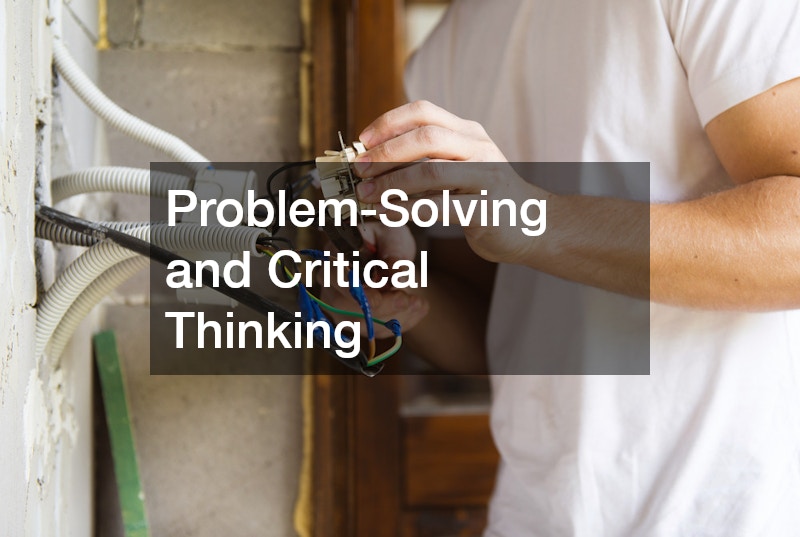As an electrician, understanding the fundamental nature of electricity is absolutely essential. Electricity is essentially the flow of electric charge, most commonly through a conductor, like a wire. This concept can be traced back to ancient Greece, but it wasn’t until the late 19th century that electricity became pivotal in modern society.
The discovery of the electron allowed us to better control and utilize electrical energy, paving the way for advancements in technology and infrastructure.
Today, electricity powers everything from our homes and appliances to our electronic devices. The understanding of electric currents and electromagnetic forces is crucial for troubleshooting electrical problems effectively. For example, knowing how alternating current (AC) differs from direct current (DC) can help in diagnosing and repairing home electrical systems. An electrician in Orlando, FL, or similar regions will often deal with AC systems due to their prevalence.
Safety remains the cornerstone of working with electricity. Understanding the properties of voltage, current, and resistance, as well as their interrelationships, is vital for ensuring safe and effective electrical work. Electricians must also comprehend complex concepts such as Ohm’s Law to make accurate calculations when planning and executing electrical installations. This grasp of theories helps to predict how electricity will behave in various situations, thereby avoiding potential hazards.
Tool Selection and Mastery
The proper selection and mastery of tools are indispensable for any electrician. Each task requires specific tools designed to ensure work is performed safely and efficiently. Without the appropriate tools, even the simplest jobs can become cumbersome and potentially dangerous. A basic toolkit might include wire strippers, needle-nose pliers, and multimeters, but specialized tasks will demand more advanced equipment.
High-quality tools can significantly affect the quality of work and safety. For instance, multimeters are critical for measuring electrical properties accurately. Learning how to use such tools effectively is essential, and an electrician in Orlando, FL, or the surrounding regions will often receive extensive training on these devices to maintain industry standards. Calibration and maintenance of these tools are also important to ensure accuracy and longevity, which can save time and prevent costly mistakes down the line.
Furthermore, emerging technologies are introducing new tools and equipment to the market. Smart tools and diagnostic equipment are now integrated with digital technology to enhance accuracy and efficiency. Electricians must stay updated on the latest tool innovations to provide the highest quality service and maintain a competitive edge in the evolving landscape of the electrical trade. By keeping abreast of new technologies, like smart home integrations or solar panel connectivity, electricians can offer more comprehensive services.
Local Regulations and Codes
Adherence to local regulations and electrical codes is crucial for any electrician. These codes are in place to ensure the safety and consistency of electrical installations. An in-depth understanding of the National Electrical Code (NEC) is necessary since it lays the foundation for safety standards in electrical work across the United States. Electricians must frequently consult these codes when planning and executing their jobs.
Apart from the NEC, local ordinances can dictate specific requirements. In some regions, there might be additional rules on energy efficiency or green building standards. Electricians need to stay informed about these regulations and communicate any changes to their clients to maintain compliance and avoid penalties. Regular training sessions and workshops help electricians keep up-to-date with changes in regulations and codes.
Problem-Solving and Critical Thinking

Effective problem-solving is a daily requirement for electricians. Electrical systems can fail for a variety of reasons, from faulty wiring to overloaded circuits, and identifying the root cause often demands a methodical, analytical approach. Electricians must evaluate symptoms, trace circuits, and determine whether the issue lies with a component, a connection, or an underlying design flaw. This level of critical thinking is especially important when working in older buildings or custom installations where system layouts may not be well-documented.
An electrician inn Orlando, FL, or a similar are will often encounter unique challenges due to a mix of modern and aging infrastructure. Being able to quickly assess a situation and adapt solutions to meet the needs of the structure and client is a valuable skill. Whether it’s troubleshooting intermittent outages or planning efficient wiring routes in new construction, strong problem-solving abilities not only save time but also reduce risks and increase customer trust.
Non-compliance poses serious risks, including legal repercussions and safety hazards. A professional electrician prioritizes these regulations as a part of their commitment to quality and safety. Professionals are often well-versed in both the NEC and local guidelines to guarantee that every installation meets the necessary standards. Working closely with inspectors and contractors ensures that projects adhere to all relevant codes, thereby preventing incidents and ensuring client satisfaction.


